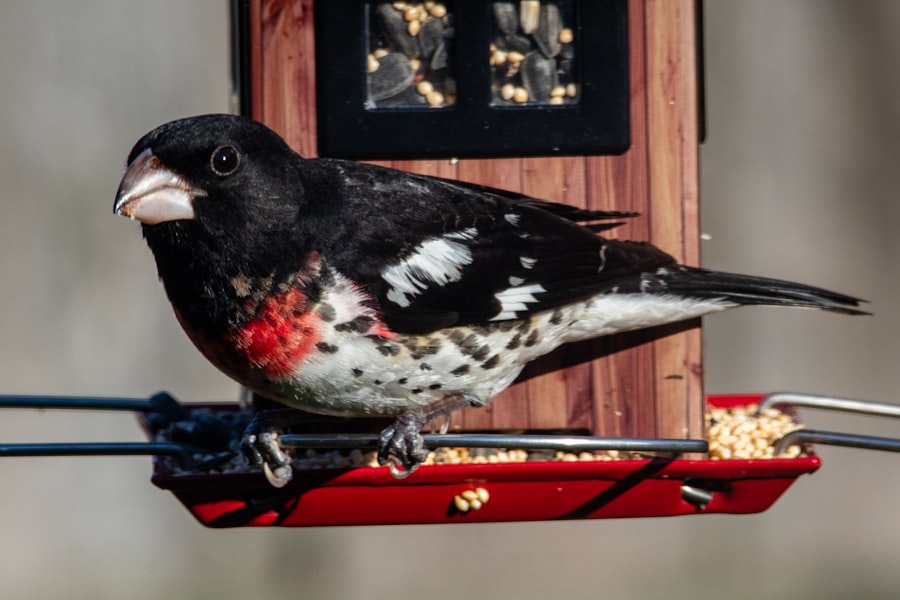Before raising chickens in your backyard, it is essential to understand and comply with local regulations and restrictions. Cities and municipalities often have specific rules regarding chicken keeping, including limits on the number of chickens allowed, coop requirements, and minimum distances from neighboring properties. Some areas may require permits or licenses for keeping chickens, while others have zoning laws that dictate coop placement on your property.
Researching and adhering to these regulations is crucial to avoid legal issues or conflicts with neighbors. Considering the impact of chicken keeping on your neighbors and community is also important. Open communication with neighbors about your plans can help address concerns and foster positive relationships.
Responsible chicken ownership involves managing noise, odors, and waste to minimize any negative effects on the surrounding area. By understanding and respecting local regulations and considering community impact, you can create a harmonious environment for backyard chicken raising.
Table of Contents
- 1 Calculating space and resources for chickens
- 2 Choosing the right breed for your backyard
- 3 Providing proper shelter and protection for your chickens
- 4 Ensuring proper nutrition and care for your chickens
- 5 Managing waste and odors from chicken keeping
- 6 Integrating chickens into your backyard ecosystem
- 7 FAQs
- 7.1 What are the legal restrictions on keeping chickens in a back garden?
- 7.2 How much space do chickens need in a back garden?
- 7.3 What are the considerations for keeping chickens in a back garden?
- 7.4 What are the benefits of keeping chickens in a back garden?
- 7.5 What are some common challenges of keeping chickens in a back garden?
Key Takeaways
- Check local regulations and restrictions before starting a backyard chicken coop
- Calculate the space and resources needed for the number of chickens you plan to keep
- Choose a breed that is suitable for your backyard environment and climate
- Provide proper shelter and protection from predators for your chickens
- Ensure proper nutrition and care for your chickens to keep them healthy and productive
Calculating space and resources for chickens
Space Requirements for Chickens
The amount of space required for chickens depends on the breed, but a general rule of thumb is to provide at least 2-3 square feet of coop space per chicken, with an additional 8-10 square feet of outdoor space for roaming and foraging. It is important to consider the layout of your backyard and ensure that there is enough room for a coop, outdoor run, and space for chickens to roam freely.
Providing Adequate Resources
Additionally, providing adequate resources such as food, water, nesting boxes, and perches is crucial for the health and happiness of your chickens. In addition to space, it is important to consider the resources needed for maintaining a chicken coop. This includes bedding material, feed, waterers, and feeders, as well as tools for cleaning and maintaining the coop.
Factoring in Cost and Availability
It is important to factor in the cost and availability of these resources when planning to raise chickens in your backyard. By carefully calculating the space and resources needed for raising chickens, you can ensure that your backyard is equipped to provide a comfortable and sustainable environment for your feathered friends.
Choosing the right breed for your backyard

Selecting the right breed of chicken is an important decision when planning to raise chickens in your backyard. Different breeds have varying characteristics such as egg production, temperament, size, and cold or heat tolerance. It is important to consider your specific needs and preferences when choosing a breed that will thrive in your backyard environment.
For example, if you are primarily interested in egg production, you may want to consider breeds known for their high egg-laying capabilities such as Leghorns or Rhode Island Reds. On the other hand, if you are looking for a dual-purpose breed that can provide both eggs and meat, breeds like Plymouth Rocks or Orpingtons may be a good choice. In addition to considering the practical aspects of chicken keeping, it is also important to think about the temperament and personality of different breeds.
Some breeds are known for being more docile and friendly, making them suitable for families with children or first-time chicken owners. Other breeds may be more independent or flighty, requiring more space and less handling. By researching and understanding the characteristics of different chicken breeds, you can make an informed decision that aligns with your goals and preferences for raising chickens in your backyard.
Providing proper shelter and protection for your chickens
Creating a safe and comfortable shelter for your chickens is essential for their well-being and protection from predators. A well-designed coop should provide adequate space for roosting, nesting, and protection from the elements. It is important to consider factors such as ventilation, natural light, insulation, and predator-proofing when designing or selecting a coop for your backyard.
Additionally, providing a secure outdoor run or fenced area allows chickens to safely roam and forage while being protected from predators. In addition to shelter, it is important to implement measures for protecting chickens from potential predators such as raccoons, foxes, hawks, and even neighborhood dogs. This may include installing hardware cloth around the coop and run, securing latches on doors and windows, and using motion-activated lights or sound deterrents.
By providing proper shelter and protection for your chickens, you can create a safe and secure environment that promotes their health and well-being in your backyard.
Ensuring proper nutrition and care for your chickens
Proper nutrition and care are essential for the health and productivity of your backyard chickens. Providing a balanced diet that includes commercial feed, fresh water, grit, and occasional treats such as fruits and vegetables is crucial for meeting their nutritional needs. Additionally, ensuring access to clean water at all times is essential for hydration and overall health.
It is important to monitor their food consumption and adjust feeding amounts based on their age, size, and activity level. In addition to nutrition, regular care and maintenance are important aspects of raising healthy chickens. This includes monitoring their health, checking for signs of illness or injury, providing regular access to dust baths for natural grooming, and keeping their living quarters clean and free from waste buildup.
Regularly inspecting their coop for cleanliness, ventilation, and structural integrity is crucial for preventing disease and promoting overall well-being. By ensuring proper nutrition and care for your chickens, you can promote their health and longevity in your backyard.
Managing waste and odors from chicken keeping

Regular Cleaning is Key
Chicken waste can accumulate quickly in the coop and run, leading to unpleasant odors and potential health hazards if not managed properly. Implementing a regular cleaning schedule that includes removing soiled bedding, refreshing nesting boxes, and maintaining proper ventilation can help minimize odors and prevent the buildup of harmful bacteria.
Composting: A Sustainable Solution
In addition to regular cleaning, it is important to consider proper waste management practices such as composting chicken manure. Chicken manure is a valuable source of nutrients for gardens and can be composted to create nutrient-rich fertilizer for plants.
Benefits of Composting Chicken Waste
By implementing a composting system for chicken waste, you can reduce odors, minimize waste buildup, and create a sustainable solution for managing waste from chicken keeping in your backyard.
Integrating chickens into your backyard ecosystem
Integrating chickens into your backyard ecosystem can have numerous benefits for both the chickens and your garden. Chickens are natural foragers and can help control pests such as insects, slugs, and weeds while also providing valuable fertilizer through their manure. Allowing chickens access to certain areas of your garden can help improve soil health through natural tilling and fertilization while reducing the need for chemical pesticides or fertilizers.
In addition to their role in pest control and fertilization, chickens can also contribute to a more sustainable backyard ecosystem through their ability to recycle kitchen scraps into eggs or compost material. By incorporating chickens into your backyard ecosystem, you can create a symbiotic relationship that benefits both the chickens and the overall health of your garden. However, it is important to carefully manage their access to certain areas of the garden to prevent overgrazing or damage to delicate plants.
By integrating chickens into your backyard ecosystem in a thoughtful manner, you can create a harmonious balance that promotes sustainability and productivity in your outdoor space.
If you’re wondering how many chickens you can keep in your back garden, you may also be interested in learning about converting a shed into a chicken coop. This article provides helpful tips and guidance on how to repurpose an existing structure to accommodate your feathered friends.
FAQs
What are the legal restrictions on keeping chickens in a back garden?
In many areas, there are local ordinances and regulations that dictate the number of chickens that can be kept in a back garden. These regulations may also cover issues such as coop size, distance from property lines, and noise levels.
How much space do chickens need in a back garden?
Chickens require a minimum of 2-3 square feet of space per bird inside the coop, and 8-10 square feet of space per bird in an outdoor run. It’s important to provide enough space for the chickens to move around comfortably and engage in natural behaviors.
What are the considerations for keeping chickens in a back garden?
Before keeping chickens in a back garden, it’s important to consider factors such as local regulations, space requirements, predator protection, waste management, and potential impact on neighbors. Proper planning and research are essential for successful backyard chicken keeping.
What are the benefits of keeping chickens in a back garden?
Keeping chickens in a back garden can provide a sustainable source of fresh eggs, natural pest control, and fertilizer for the garden. Additionally, many people find joy and relaxation in caring for chickens and observing their behaviors.
What are some common challenges of keeping chickens in a back garden?
Common challenges of keeping chickens in a back garden include predator attacks, disease management, waste management, and potential conflicts with neighbors. It’s important to be prepared for these challenges and have a plan in place to address them.
Meet Walter, the feathered-friend fanatic of Florida! Nestled in the sunshine state, Walter struts through life with his feathered companions, clucking his way to happiness. With a coop that’s fancier than a five-star hotel, he’s the Don Juan of the chicken world. When he’s not teaching his hens to do the cha-cha, you’ll find him in a heated debate with his prized rooster, Sir Clucks-a-Lot. Walter’s poultry passion is no yolk; he’s the sunny-side-up guy you never knew you needed in your flock of friends!







